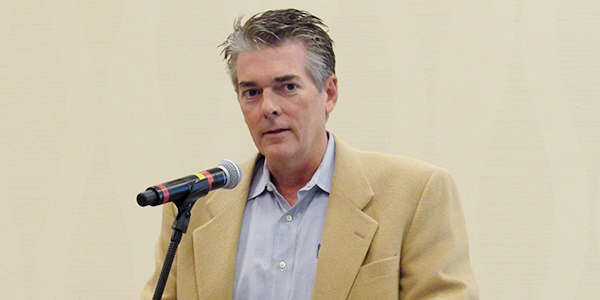MISO stakeholders were shocked to learn that the RTO needs another few years to allow energy storage to participate in its markets.
In a March 4 filing with FERC, the grid operator asked for a March 1, 2025, deadline to comply with Order 841, three years more than it first said it would need (ER19-465).
If FERC approves the request, it will be MISO’s second delay. The RTO last year secured a first deferral that held its compliance deadline until June 6, 2022, longer than any other RTO. (See Storage Plans Clear FERC with Conditions.) Order 841 originally stipulated a Dec. 3, 2019, compliance deadline.
Shawn McFarlane, MISO’s executive director of market operations, said the demands of incorporating a functioning model for storage participation aren’t best handled on the grid operator’s vintage market platform.
Speaking during a March 11 Market Subcommittee meeting, McFarlane said should MISO win a second deferment, staff could put more attention into quickly completing the ongoing market platform replacement, termed the Market System Enhancement (MSE). He said the storage participation would go more smoothly if the aging platform was altogether removed from the equation.
“The requested deferment of Order No. 841 implementation will enable MISO to accelerate the completion of the MSE in 2024,” MISO said in its request. “By completing the MSE earlier, MISO can more quickly and cost effectively prepare for and meet its emergent and future reliability needs, particularly those arising from the reliability impacts of greater and rapid penetration of wind and solar resources, which may reach or exceed a critical threshold of 30% of MISO’s load as early as 2026.”
MISO’s day-ahead market is set to go live on the new platform sometime in 2023, while real-time market operations will wait until early 2025. The old market platform will be completely retired sometime in 2026, though the bulk of the replacement will be complete by late 2024.
MISO has put on hold other market products, including new 30-minute reserves and better modeling for combined-cycle units because its current monolithic platform isn’t sophisticated enough to accommodate them.
Multiple stakeholders seemed gobsmacked that MISO wants to wait so long before fully opening its markets to energy storage resources.
“I think a four-year delay in trying to implement Order 841 is really too long,” Southern Renewable Energy Association Director Simon Mahan said, urging MISO to pursue a “stopgap” measure before the 2025 timeframe.
“I just find it really hard to believe that we’ve known about Order 841 for so long, and now we’re anticipating an even longer delay to get things up and running,” Mahan said.
Customized Energy Solutions’ David Sapper called the deferral request a “head scratcher,” noting that MISO executives have repeatedly said time is of the essence in responding to fast-growing renewable generation on the system.
McFarlane said MISO prefers not to “juggle between the two systems” when it rolls out its electric storage participation model.
“If we continue to do this both in the legacy system and the [new platform], it’s going to slow things down,” he said. “Yeah, we could get this done, but we’re going to delay other things even more.”
McFarlane added that he understood stakeholders’ disappointment, saying the decision “certainly wasn’t taken lightly.”
WEC Energy Group’s Chris Plante said stakeholders “were taken off guard” by the delay and he asked for a comprehensive justification. He said as the chair of the Resource Adequacy Subcommittee, he was fielding stakeholders’ questions about the delay that he couldn’t answer.
McFarlane said the criticism was fair and that MISO could have been more “stakeholder-friendly” by delivering a heads-up in February.
“Probably thinking through in retrospect, we should have done more before and also in this meeting,” he said.
Clean Grid Alliance’s Natalie McIntire expressed doubts that MISO would even be operating on a new platform within four years.
“Frankly, I don’t have any confidence that we’re going to have the MSE by 2025,” she said, adding that the multiyear project has already taken considerable time.
Stakeholders asked whether MISO would also request deferment of FERC’s Order 2222, which opens RTO markets to distributed energy aggregations.
“Not sure we’re to the point of asking for that just yet,” McFarlane answered. “We’ll try to be better about signaling other changes or plans, whether that [affects] Order 2222 or something else.”
McFarlane said he would return to the Market Subcommittee in April with fuller reasoning behind MISO’s decision to request a second delay.





